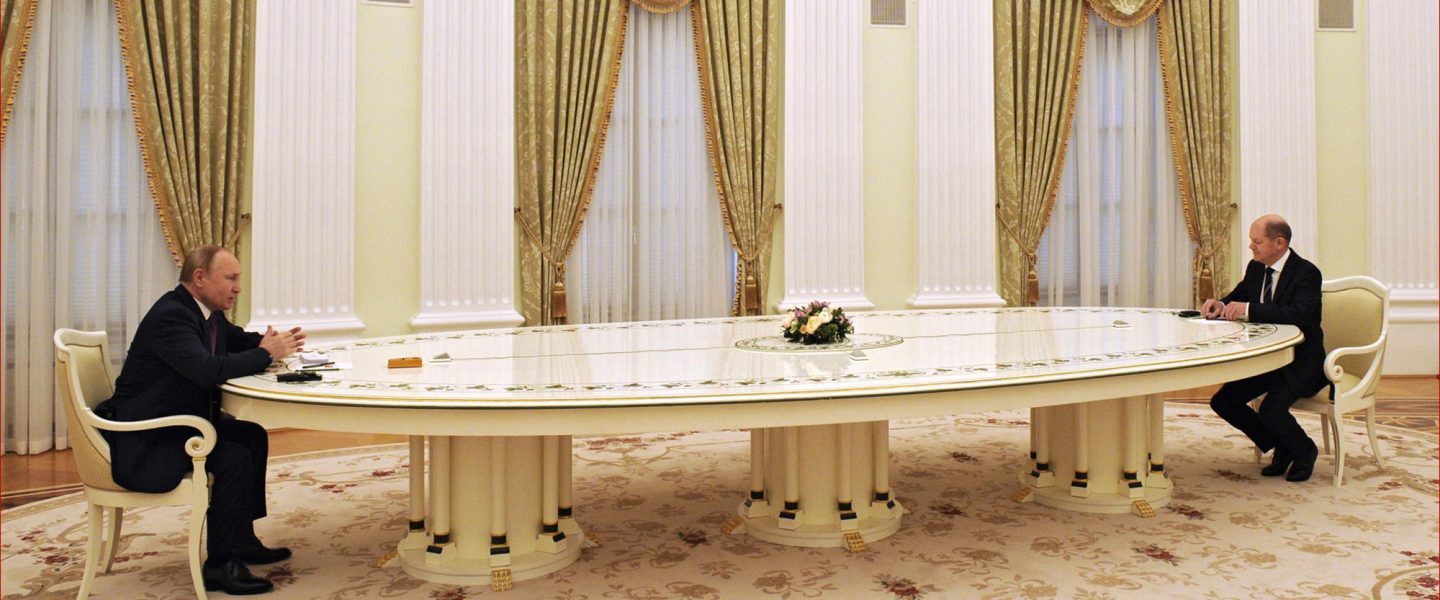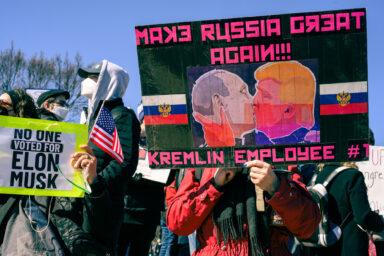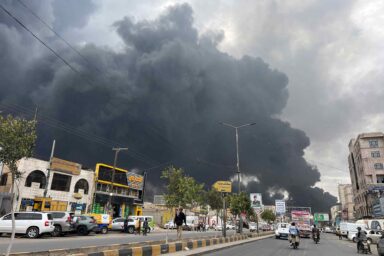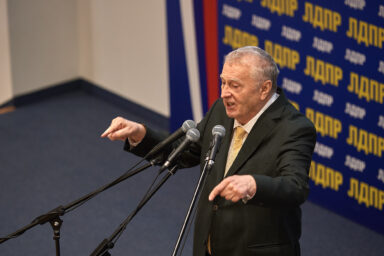The diplomatic tensions between Russia and Germany that arose before the Russian invasion of Ukraine are growing.
|
Listen To This Story
|
HAMBURG, Germany — Hundreds of German diplomats are being expelled from Russia this month. The Russian Foreign Ministry claims to have half as many diplomats in Germany as vice versa, and wants to even the score. However, since Russia also counts German teachers as diplomats, this is a very flawed equation.
Christofer Burger, spokesperson for the German Ministry of Foreign Affairs, calls Russia’s action an “unjustified decision.”
“The Russian government has taken a step of escalation,” Burger said at a press conference on May 31.
Russia’s move follows a history of tit-for-tat expulsions between Russia and Germany. In April 2022, Germany deported 40 Russians, saying they were “secret agency workers” disguised as diplomats. A majority of them worked for the GRU, Russia’s Foreign Military Intelligence Agency. Others were employed by the Russian secret agencies FSB and SWR. According to Burger, the German Ministry of Foreign Affairs saw no other choice than expelling these Russians because they posed a threat to German national security.
Germany’s decision to deport the 40 Russians followed repeated attacks by the GRU on Germany. In 2019, a Chechen Georgian who had fought against Russian troops in Chechnya was killed in Berlin. Two Russian diplomats who were active for the GRU were consequently expelled.
In 2015, GRU hackers stole 16 GB of data from members of the German parliament, including data from the office of then-Chancellor Angela Merkel. These hacking attacks were controlled from Moscow. The disguised diplomats active in Germany also spied on people who were of interest to the GRU: Russians in exile, Ukrainians, and German politicians, according to the German newspaper Tagesspiegel.
German Foreign Minister Annalena Baerbock said that those 40 expelled Russians “worked every day against our freedom and against the cohesion in our society.” After Russia’s attack on the Ukrainian town of Bucha last year, Germany wanted to counter the “brutality of the Russian leadership” with “the strength of our freedom and humanity,” Baerbock said.
“Germany started the whole story with the expulsions — not us.” — Maria Zakharova, Russian Ministry of Foreign Affairs
Bucha was occupied by Russian forces in March 2022. After the forces withdrew, Human Rights Watch found evidence of serious war crimes, such as summary executions and other unlawful killings, as well as enforced disappearances and torture.
Before the events in Bucha, the German domestic intelligence services had already begun investigating these Russians. After the Bucha massacre, the expulsion gained more symbolic power for Germany as a punitive measure and diplomatic sanction against the Russian war.
Russia, however, followed this up with announcing in April an expulsion of at least 20 German diplomats “who have done nothing wrong,” according to Burger.
The Russian Ministry of Foreign Affairs saw this differently. Spokesperson Maria Zakharova said at the end of May: “Germany started the whole story with the expulsions — not us.”
Now, the Russians will only allow 350 German diplomats to stay in the country, and the rest will be expelled. They justify this by saying that there are only 350 Russian diplomats currently in Germany. However, Russia also counts teachers and other employees of German cultural institutions as diplomats and does not differentiate between workers with Russian or German citizenship.
The German Foreign Ministry would not confirm or deny the number of Russian diplomats in Germany.
Germany now has to prioritize what workers to keep in Russia. The most significant staff cuts will be made in cultural workers, Burger explained, since maintaining a diplomatic presence is very important during wartime. Most of these “cultural workers” are German-language teachers. Russia has already tried to complicate their work by blocking their bank accounts, which has made it difficult to offer exams and language courses.
“This decision by the Russian side now hits us hard,” said Carola Lentz, president of the Goethe Institute, an internationally active German organization that promotes cultural exchange and assists in teaching and learning the German language. “Tearing down the last bridges of civil society is deeply contrary to our convictions,” Lentz said.
These expulsions will result in significant staff shortages for German diplomats and cultural workers stationed in Russia. While the Goethe Institute’s offices in Moscow and St. Petersburg can be maintained at reduced capacity, the Institute in Novosibirsk will have to close.
Furthermore, the German consulates general in Kaliningrad, Yekaterinburg, and Novosibirsk will be closed until November. “The embassy in Moscow and the consulate general in Saint Petersburg will be maintained,” Burger said.
Moreover, Germany will close four of the five Russian consulates in Germany by the end of the year, Burger announced. Only one consulate general will remain, along with the Russian Embassy in Berlin, he said.
The tension in the diplomatic relationship of Russia and Germany will thus carry on.





